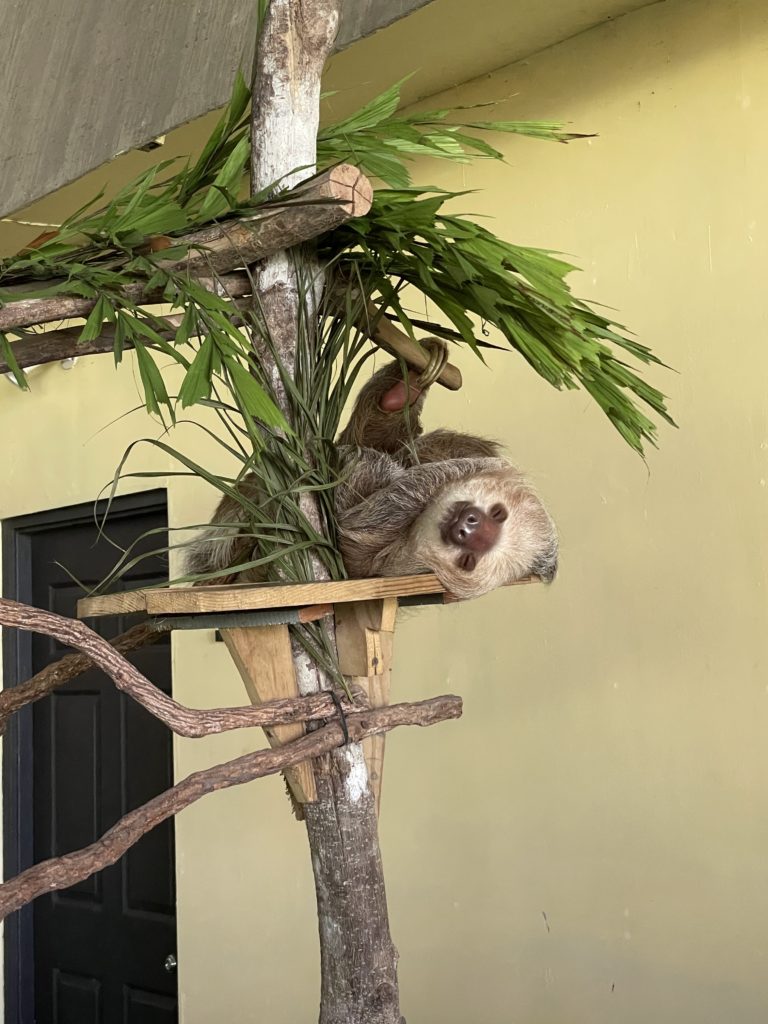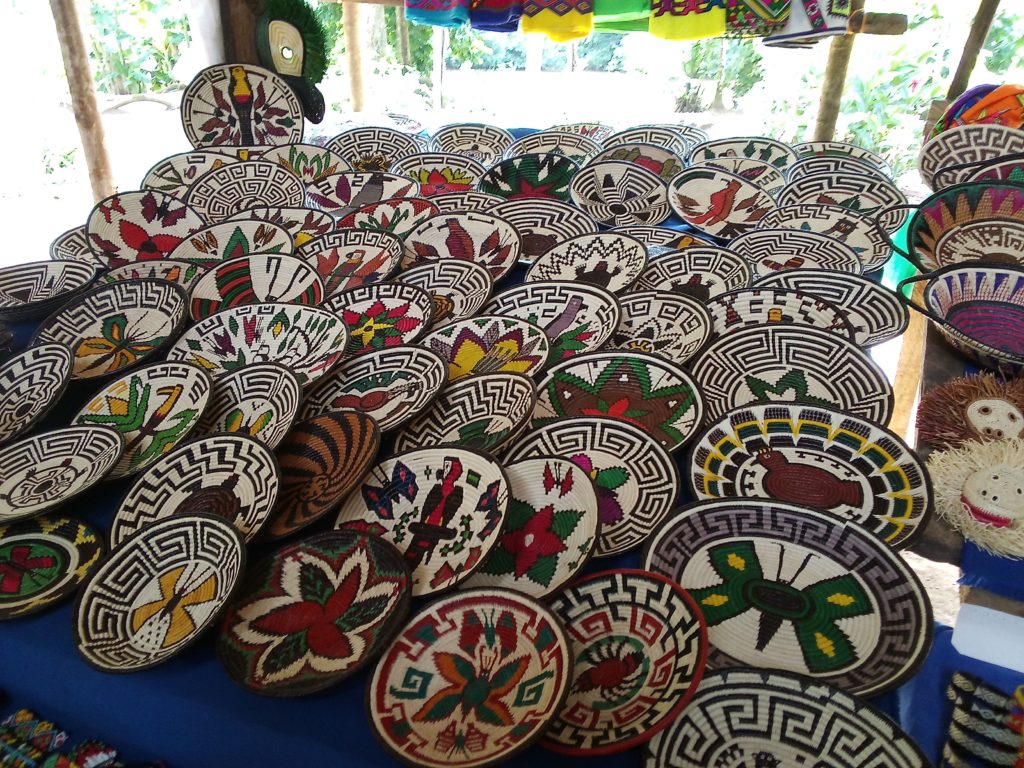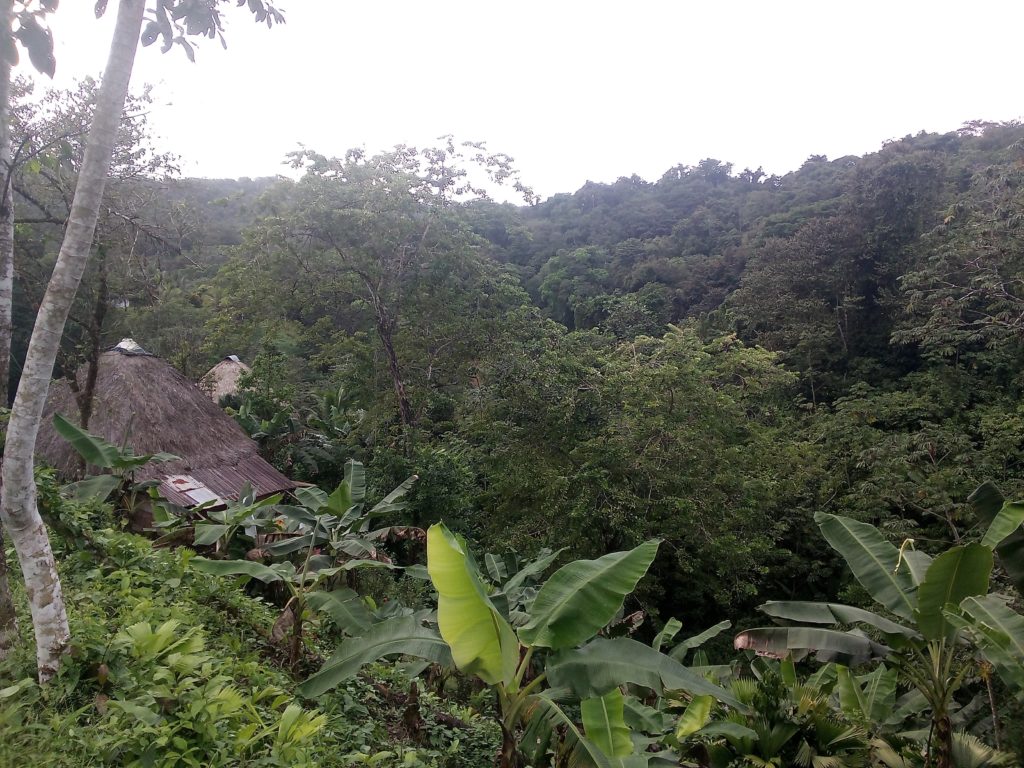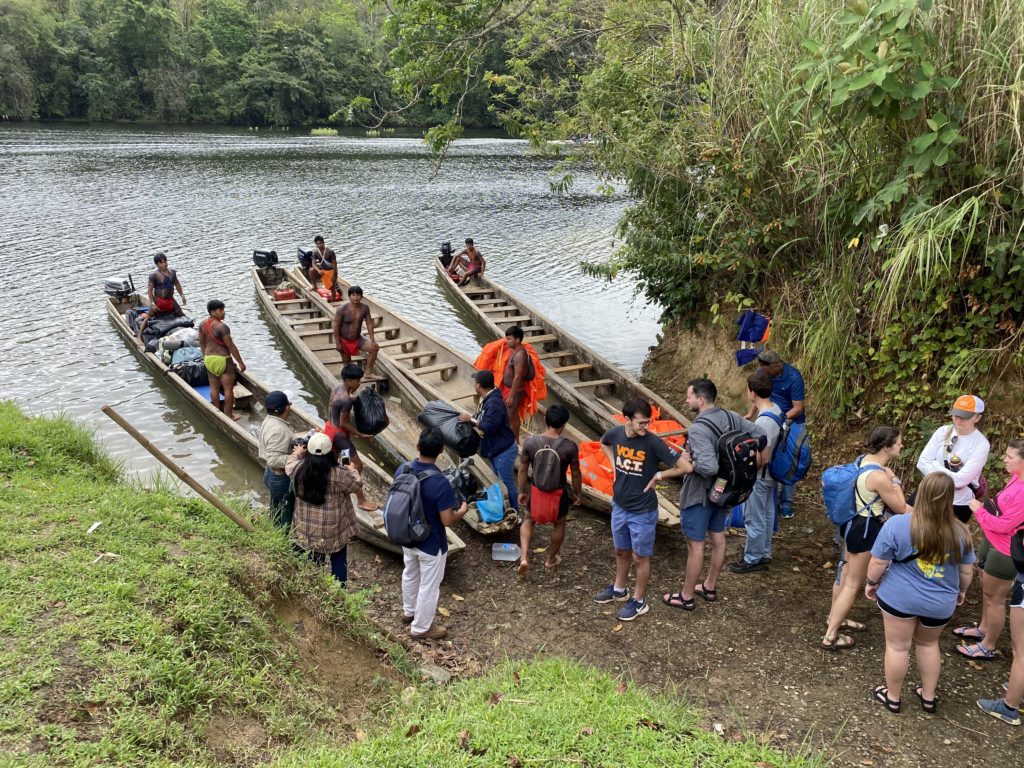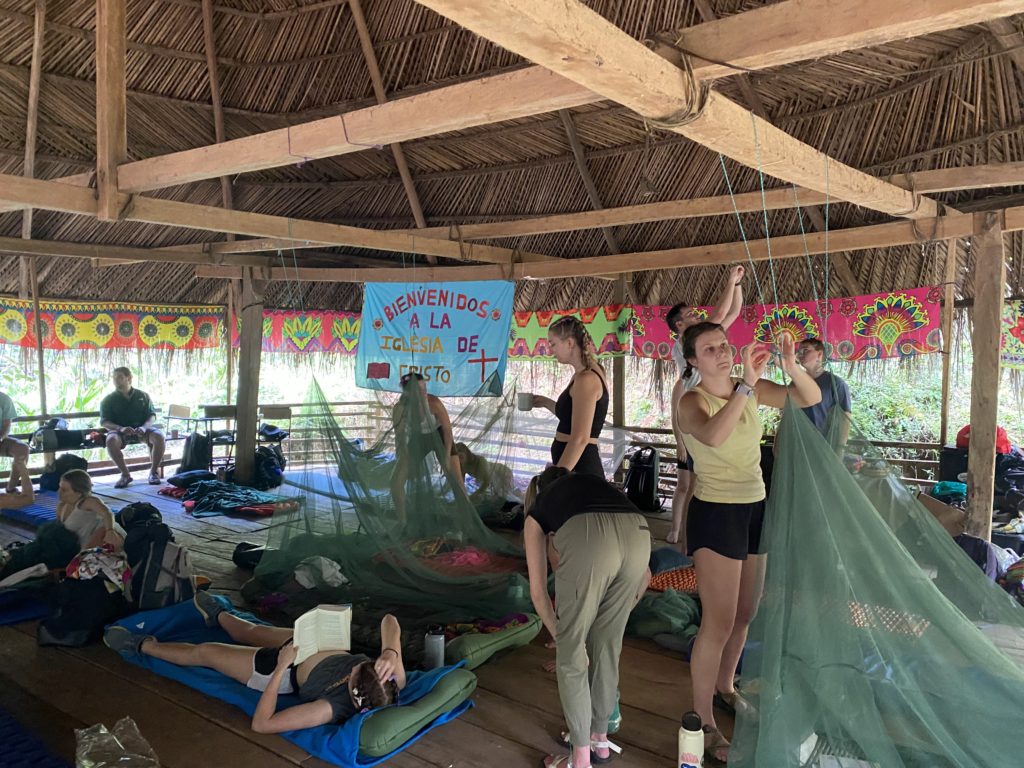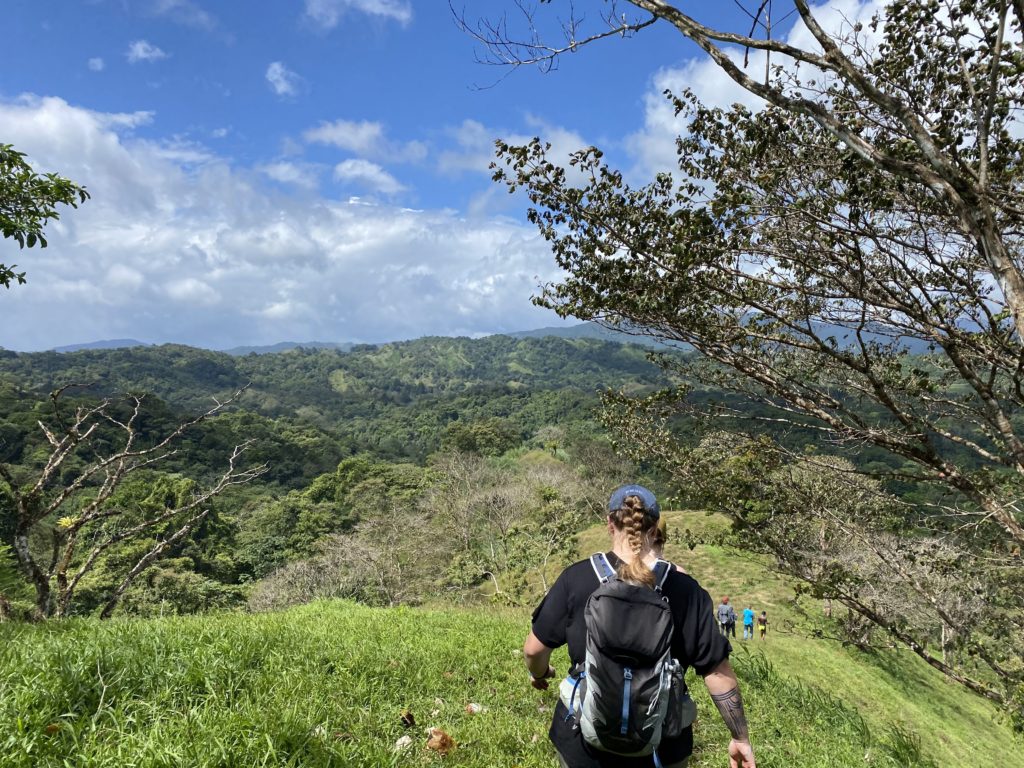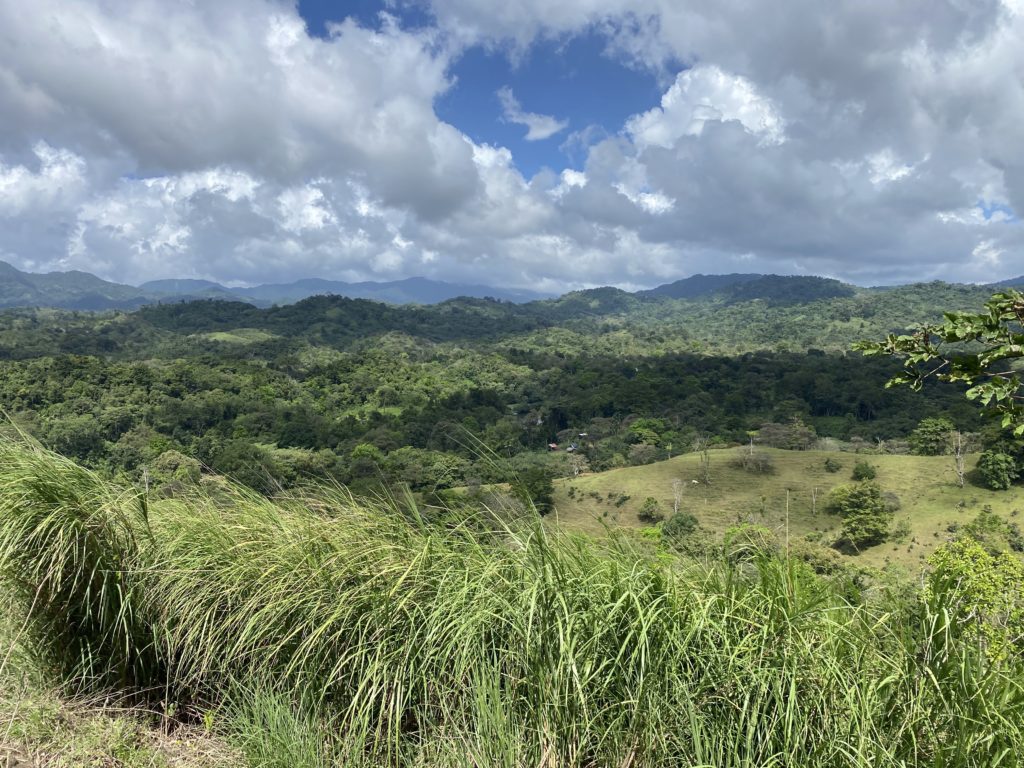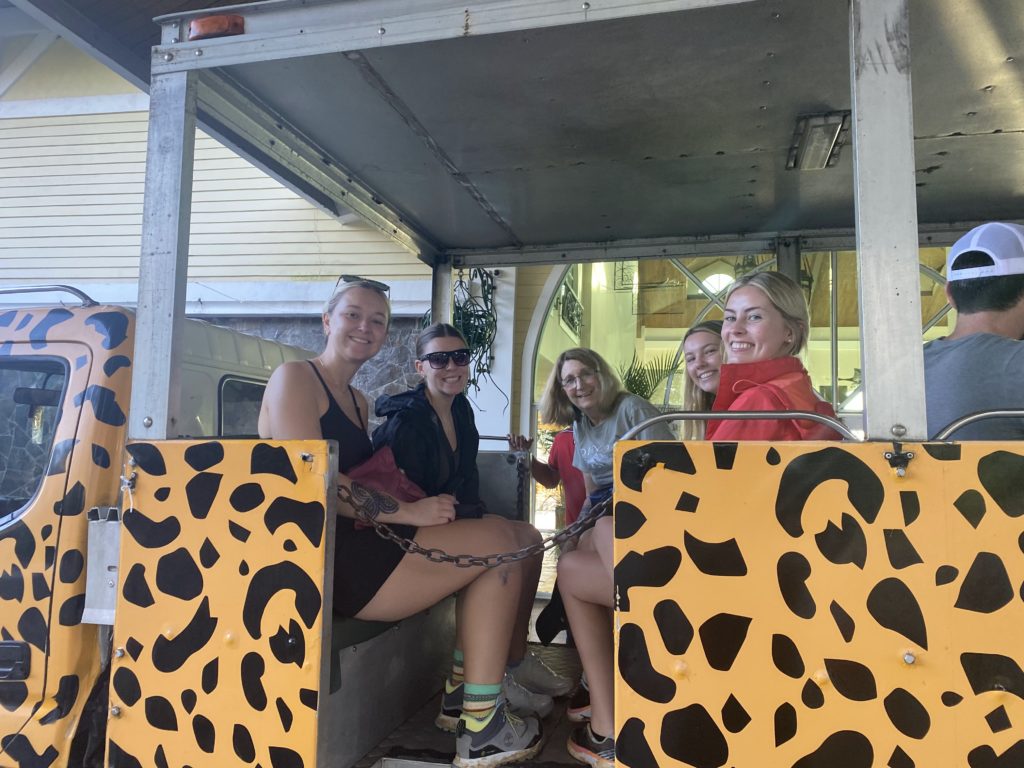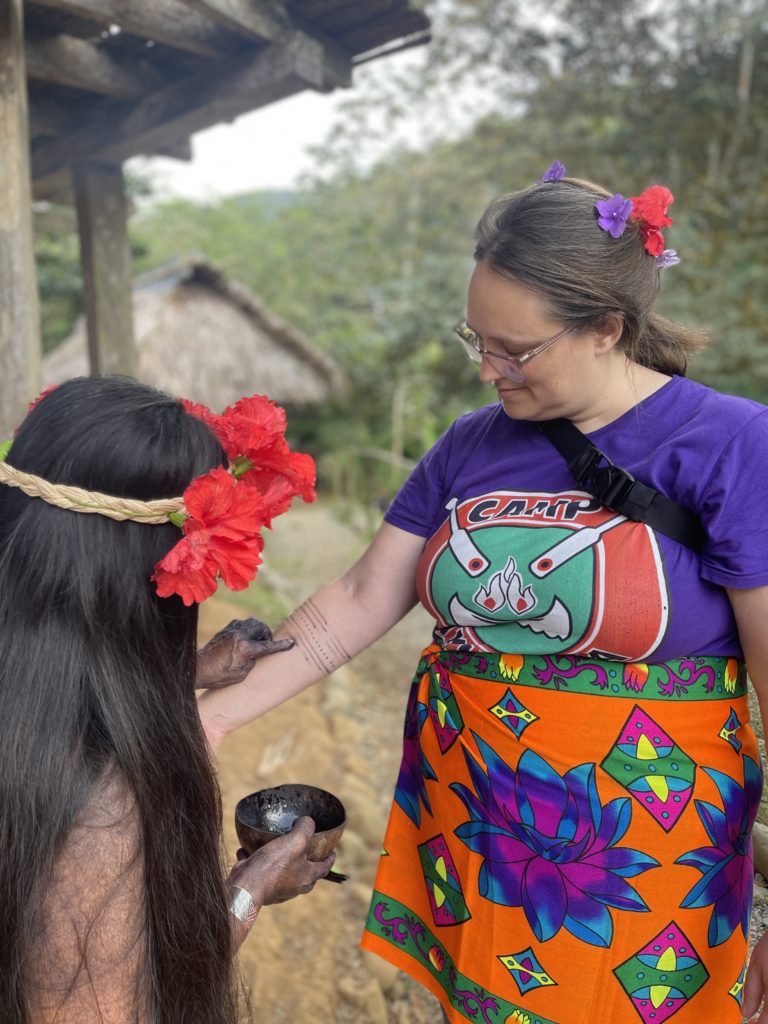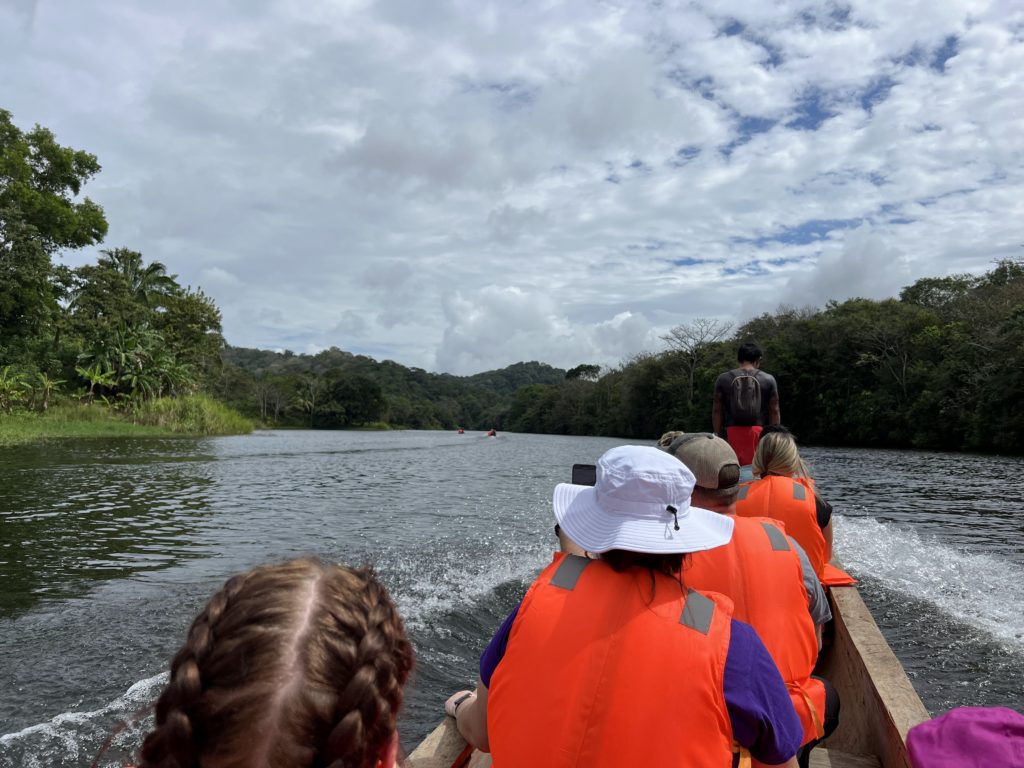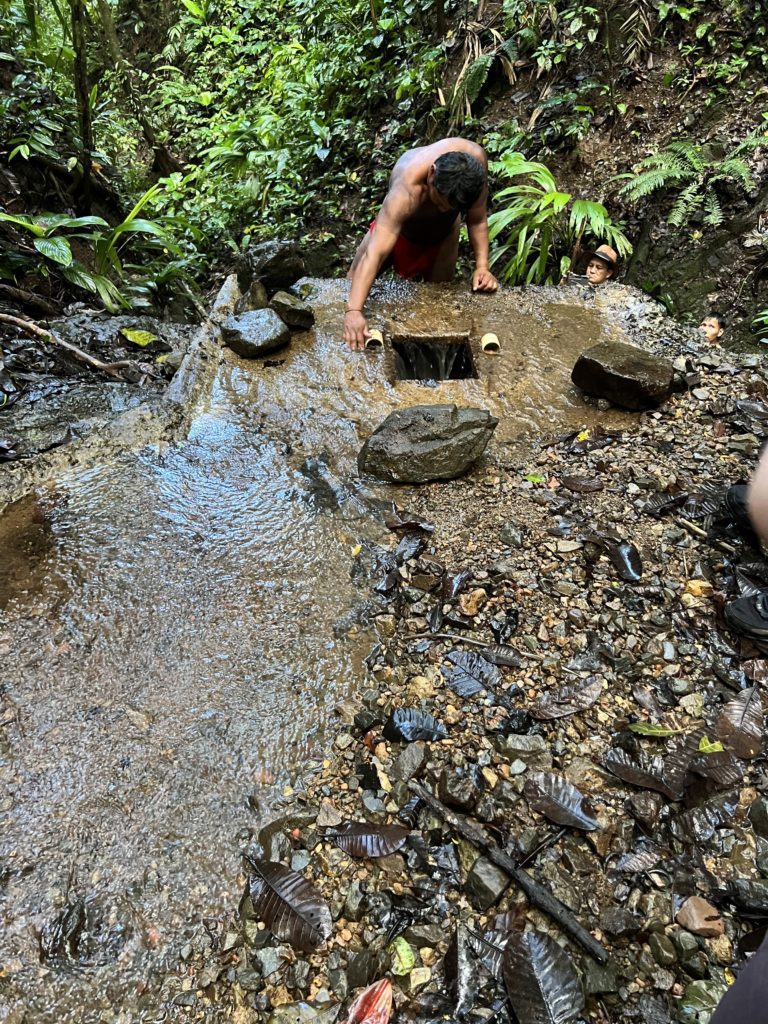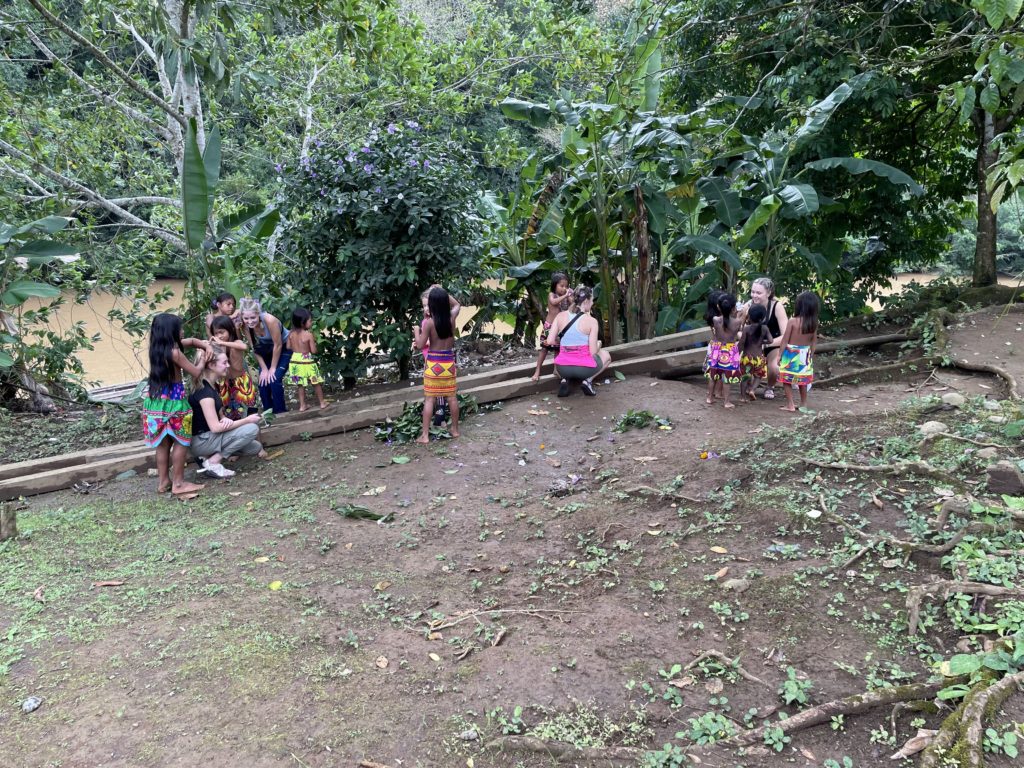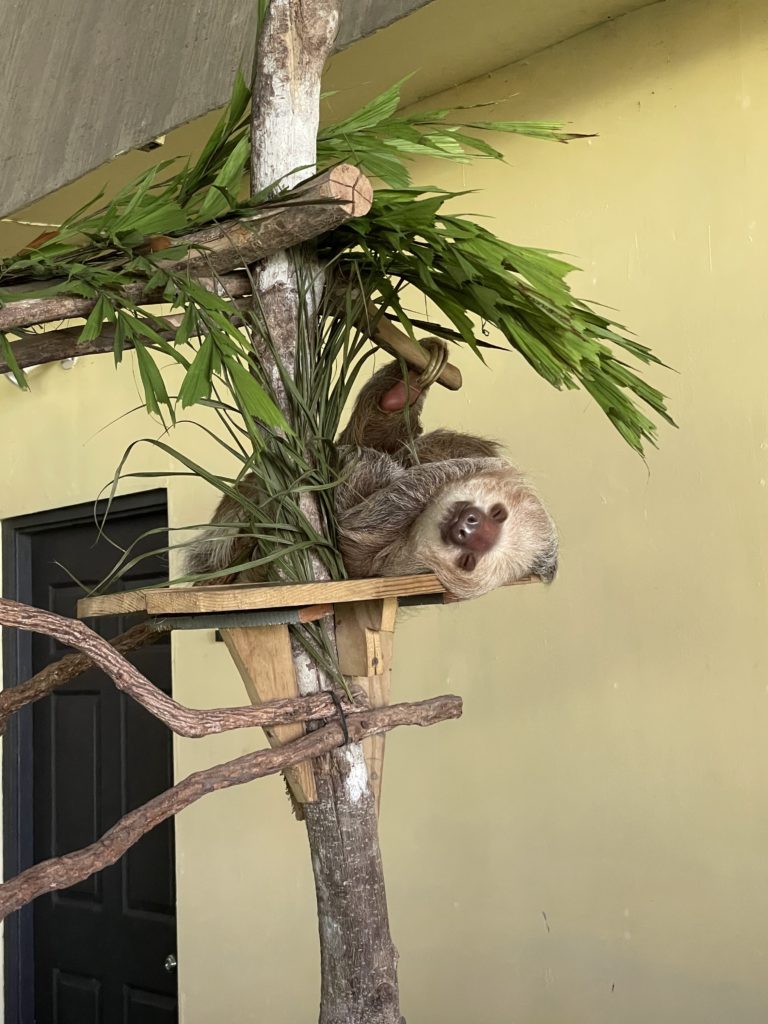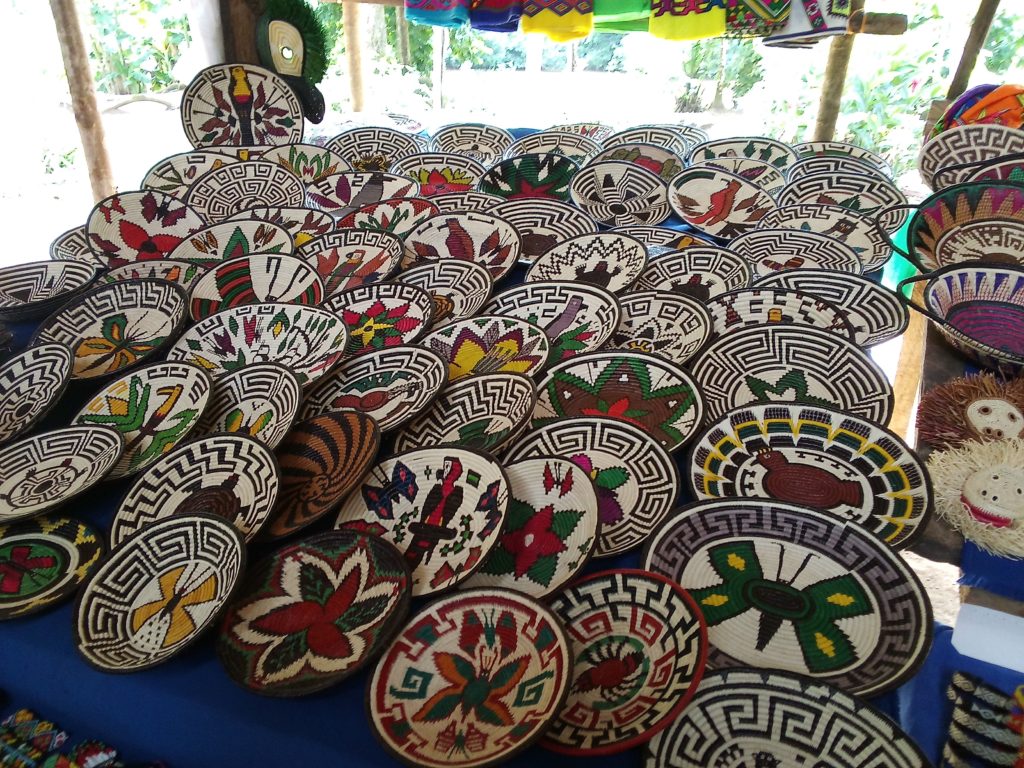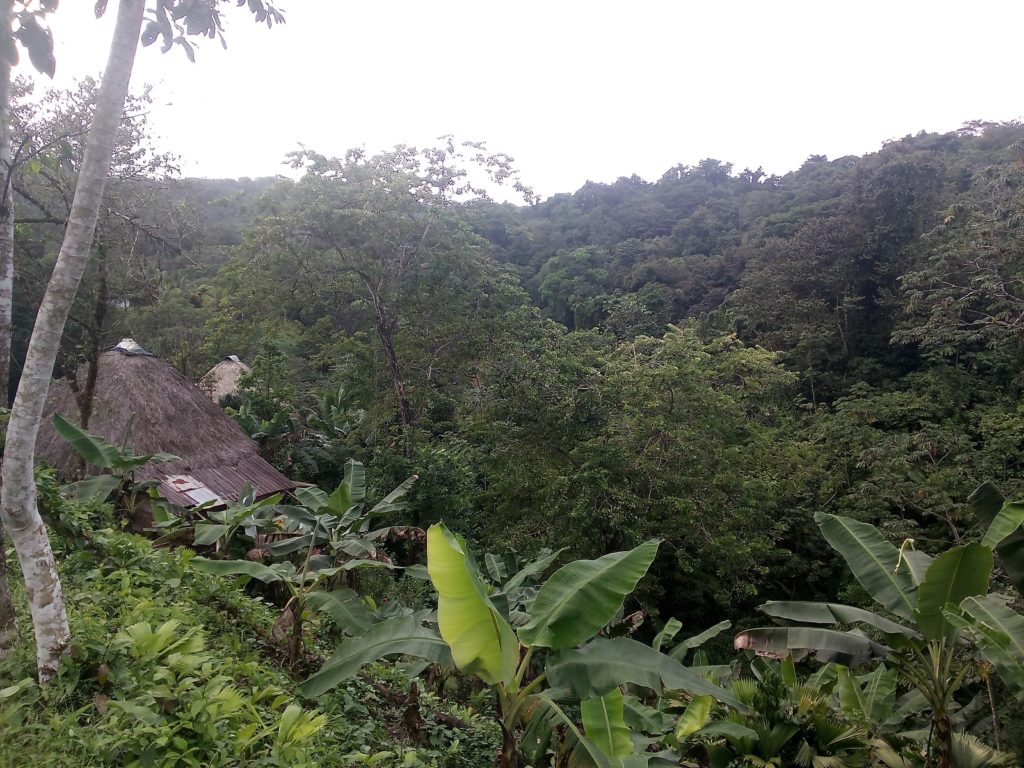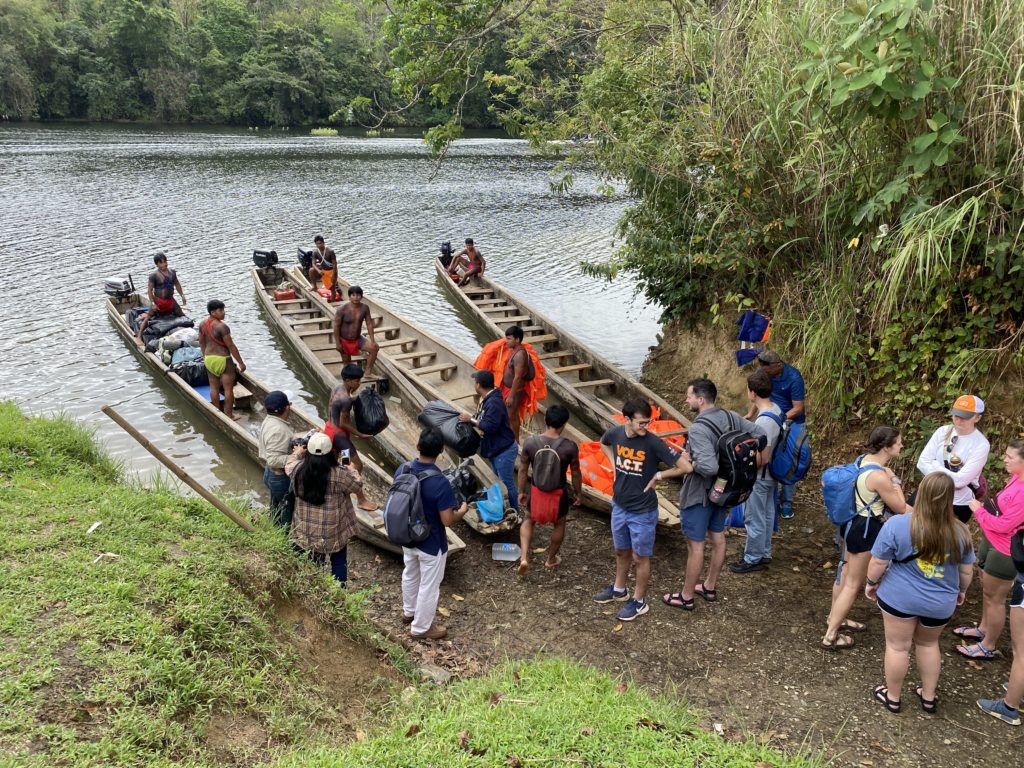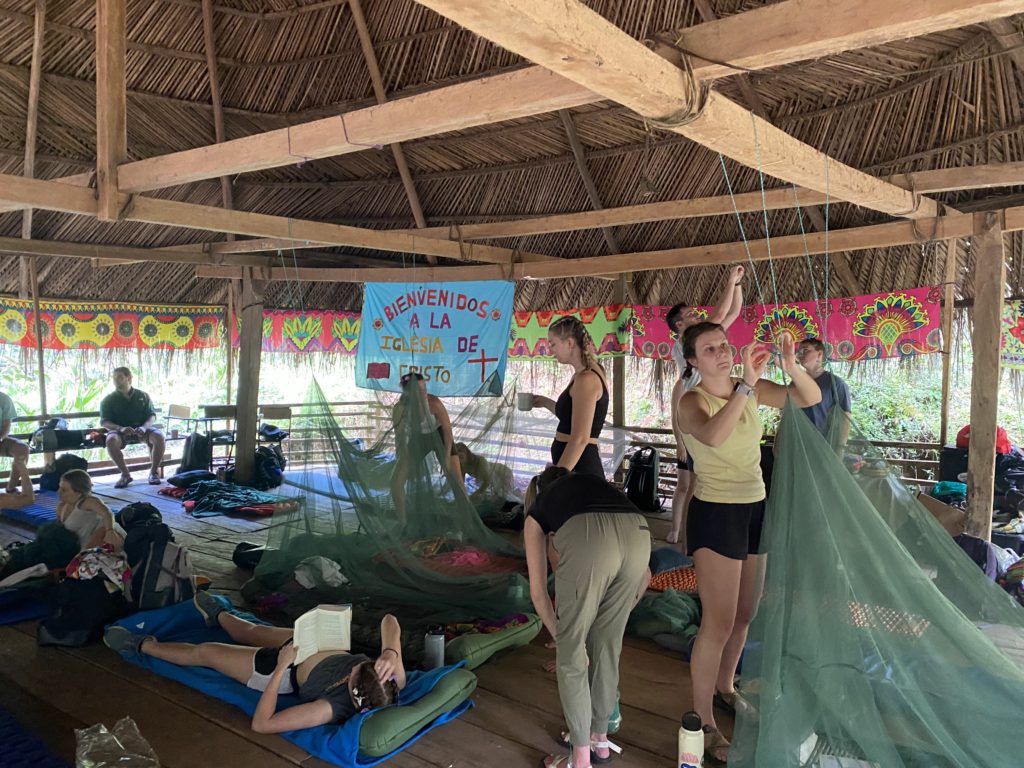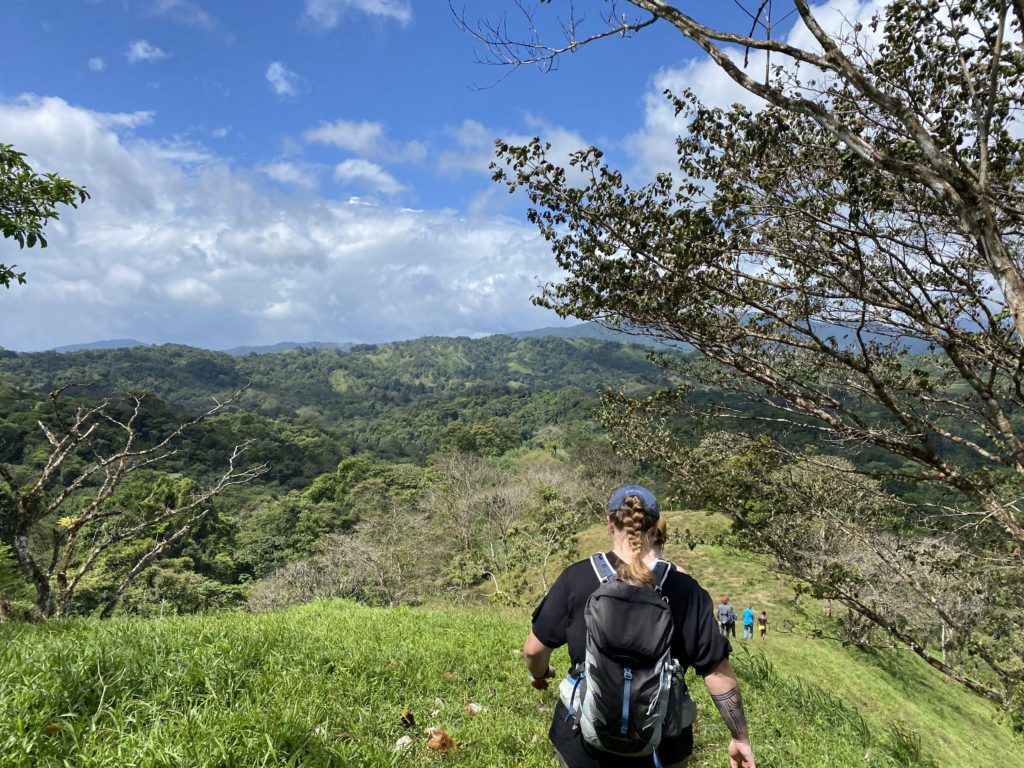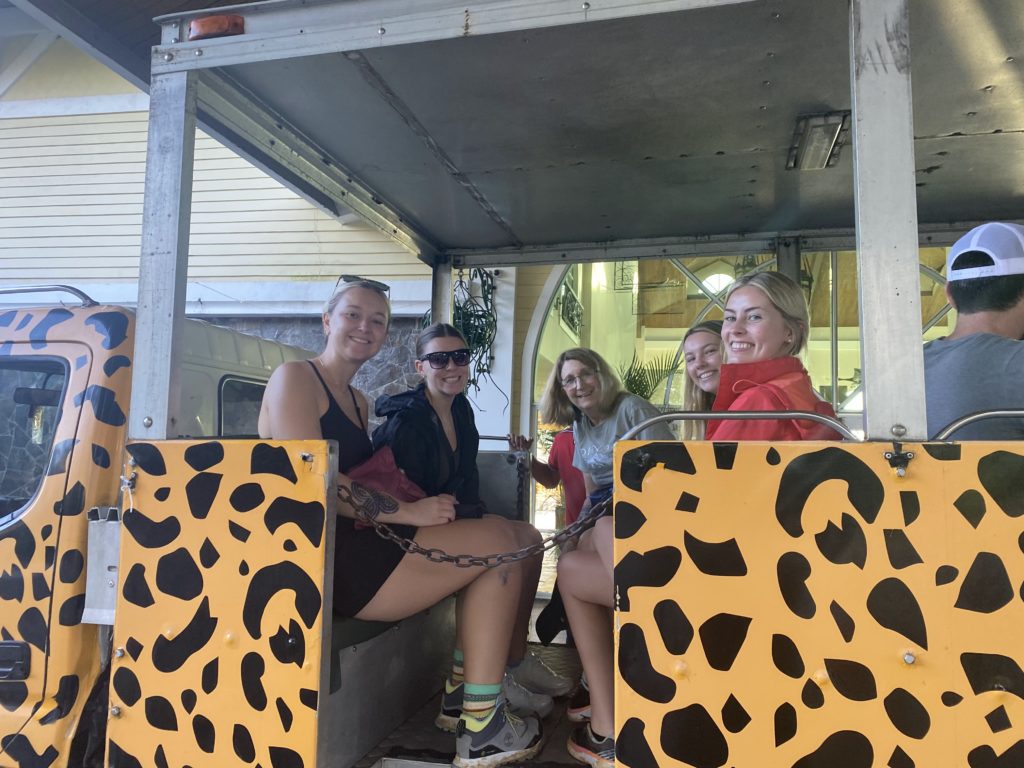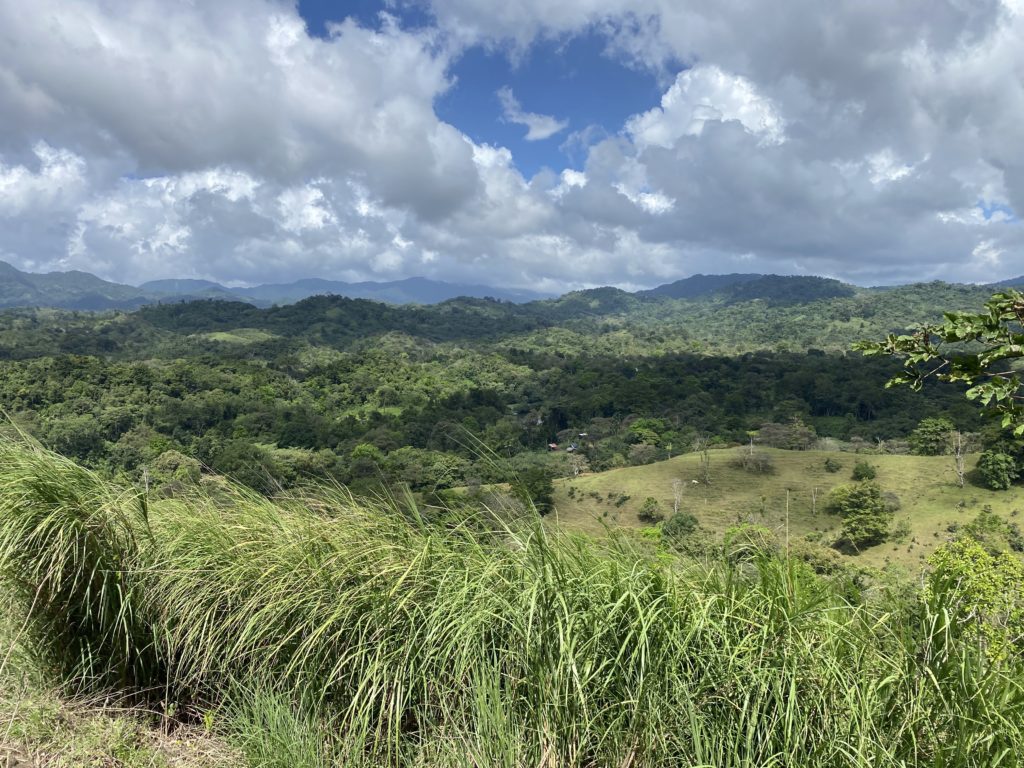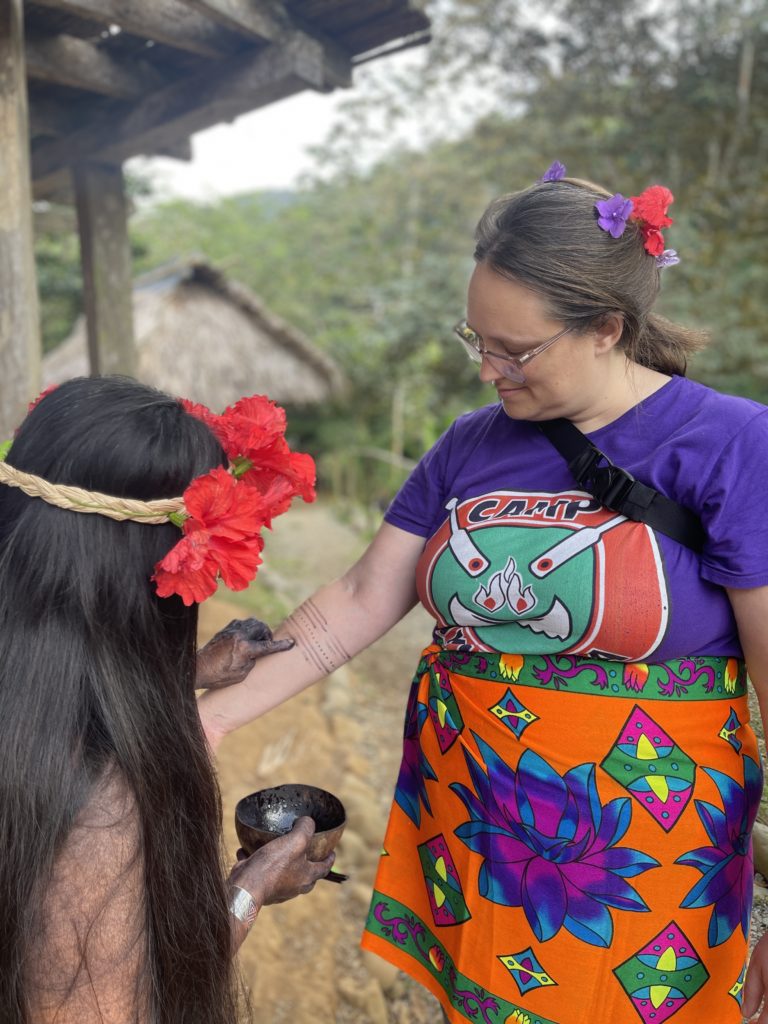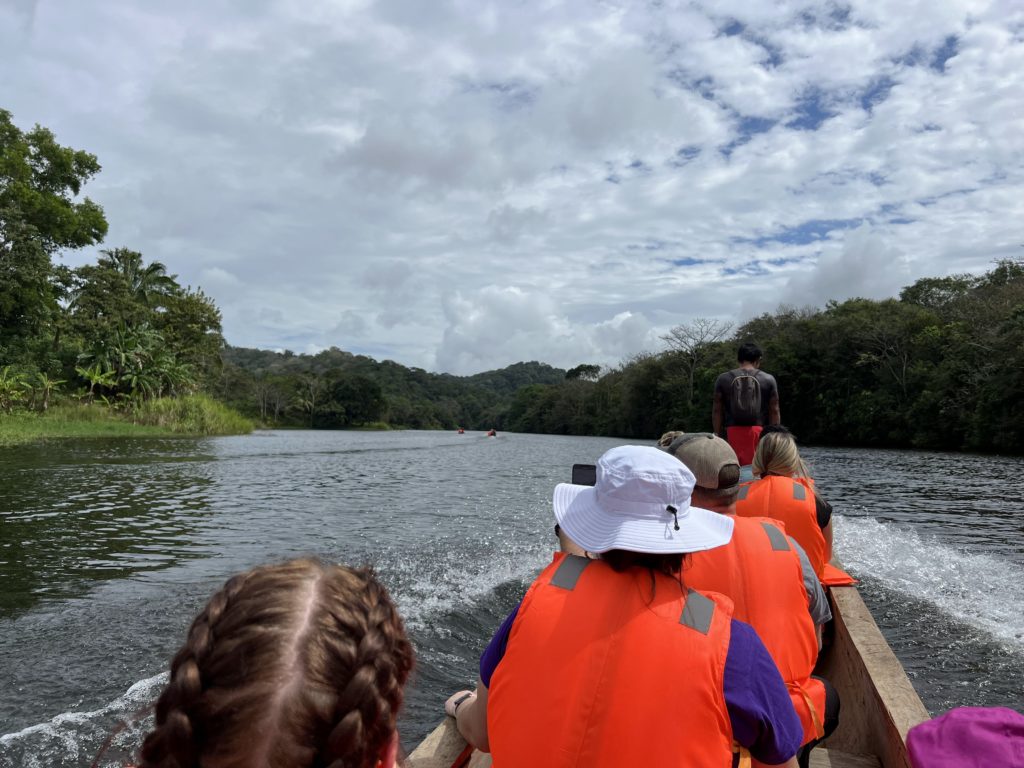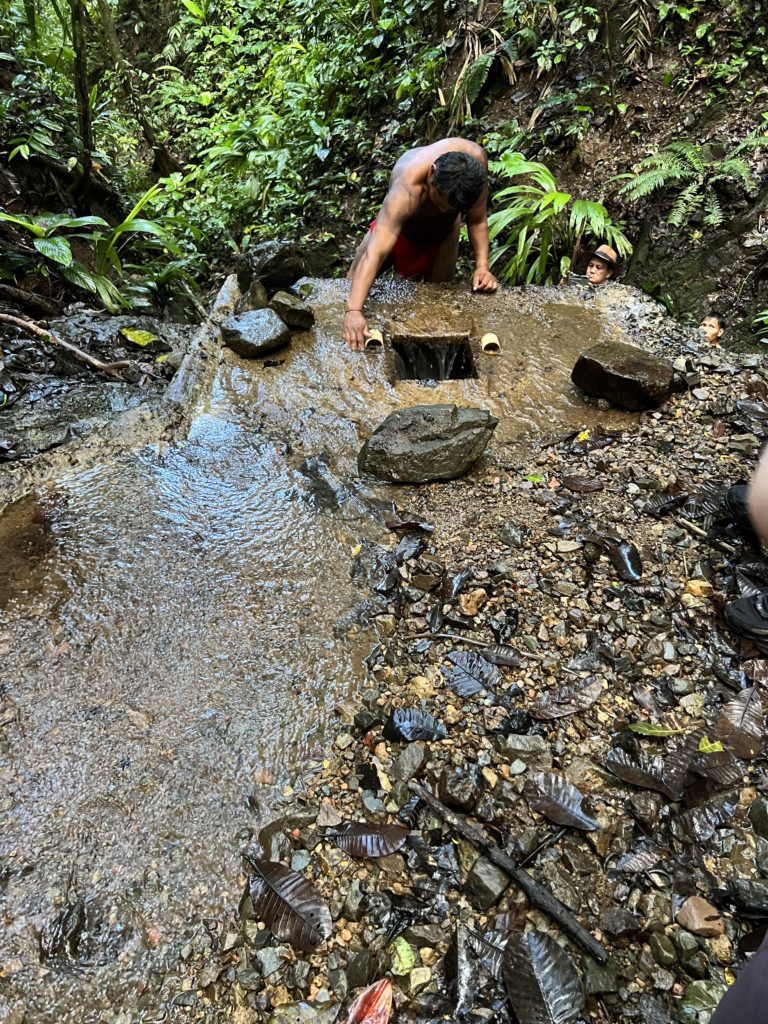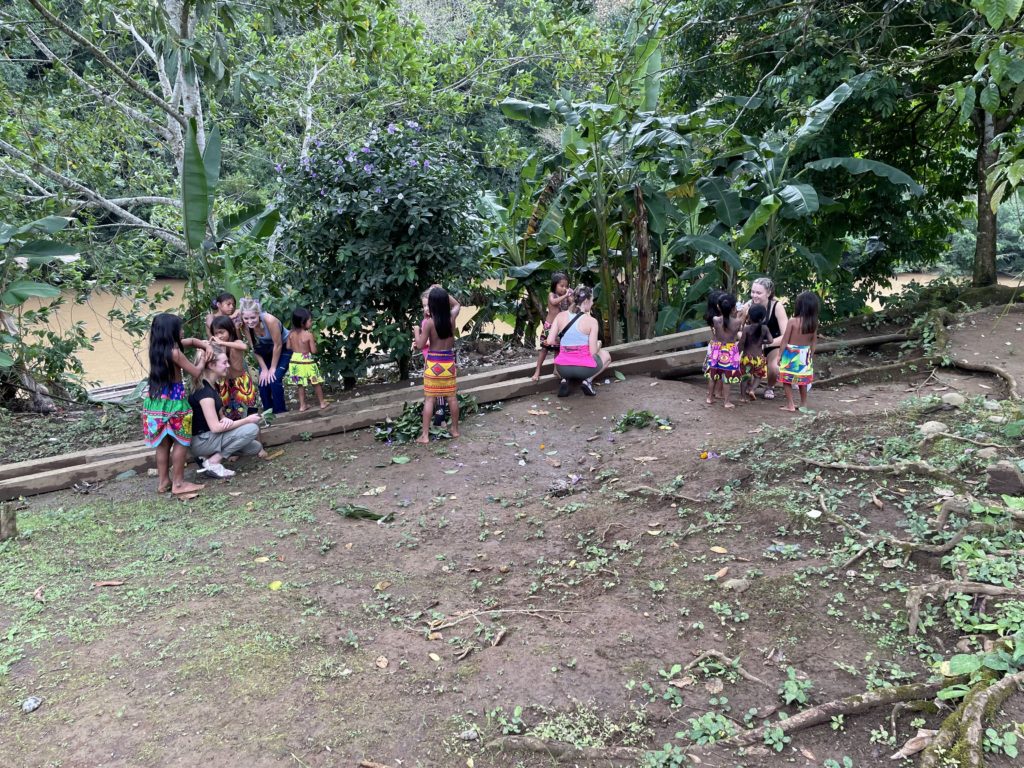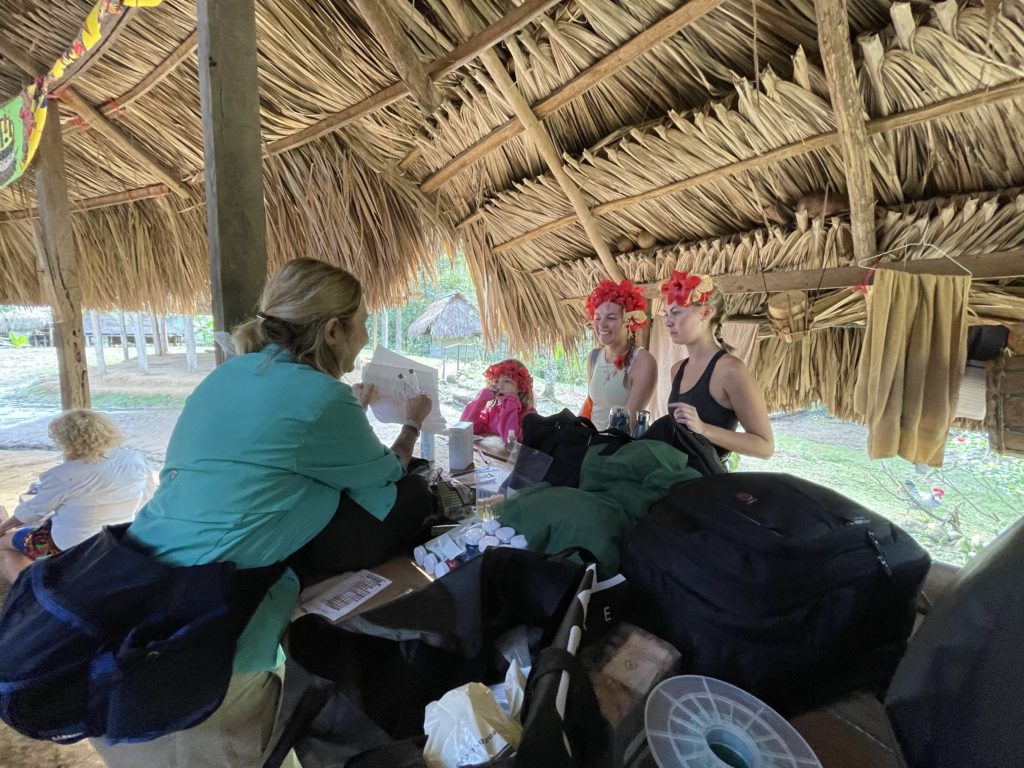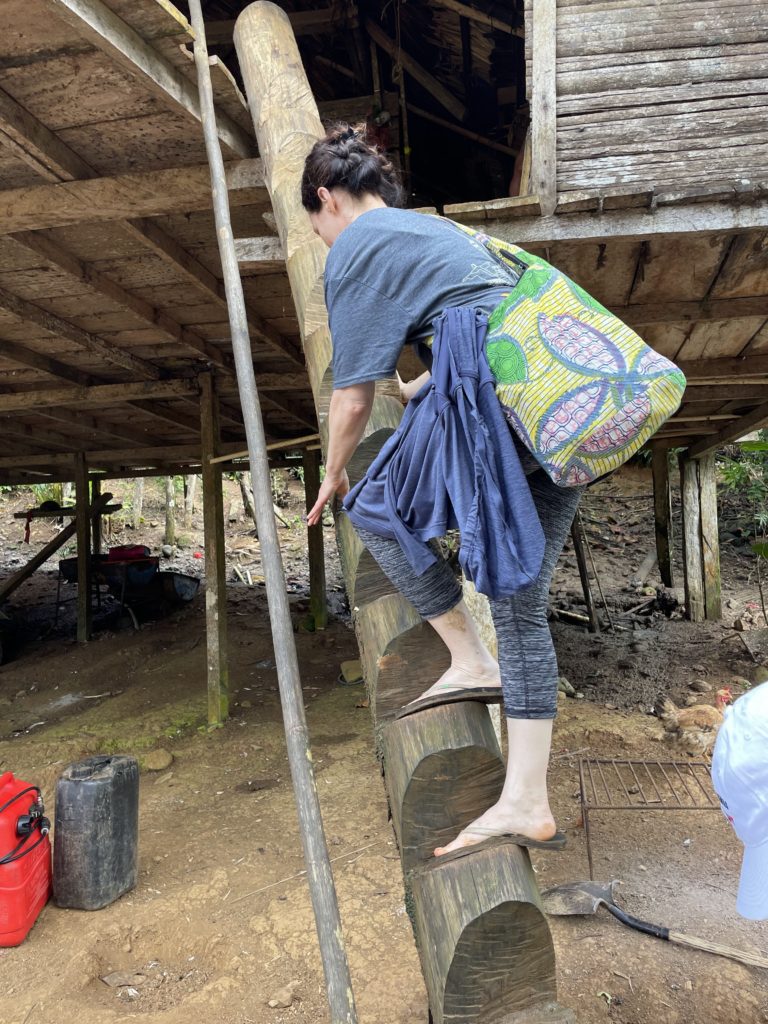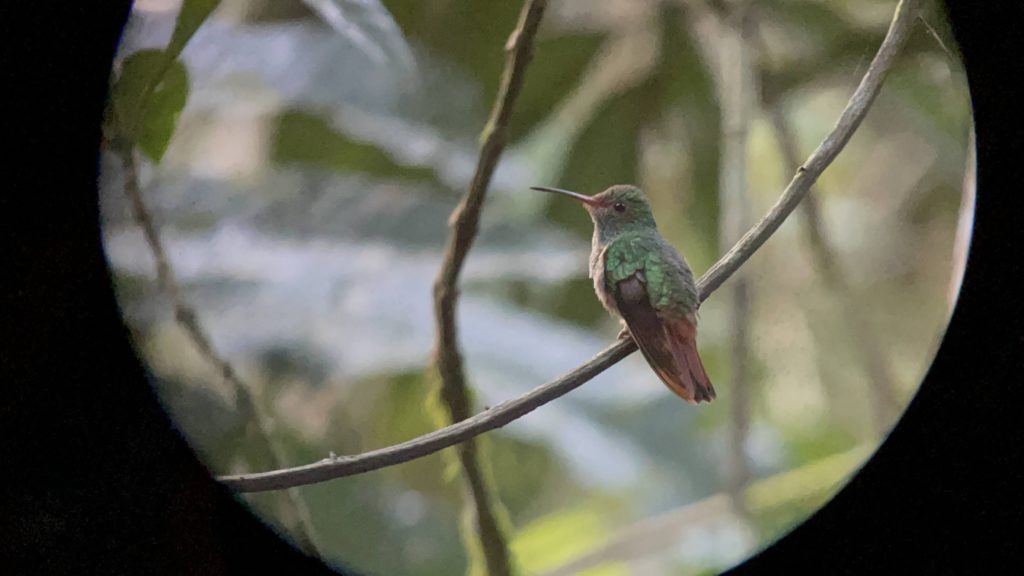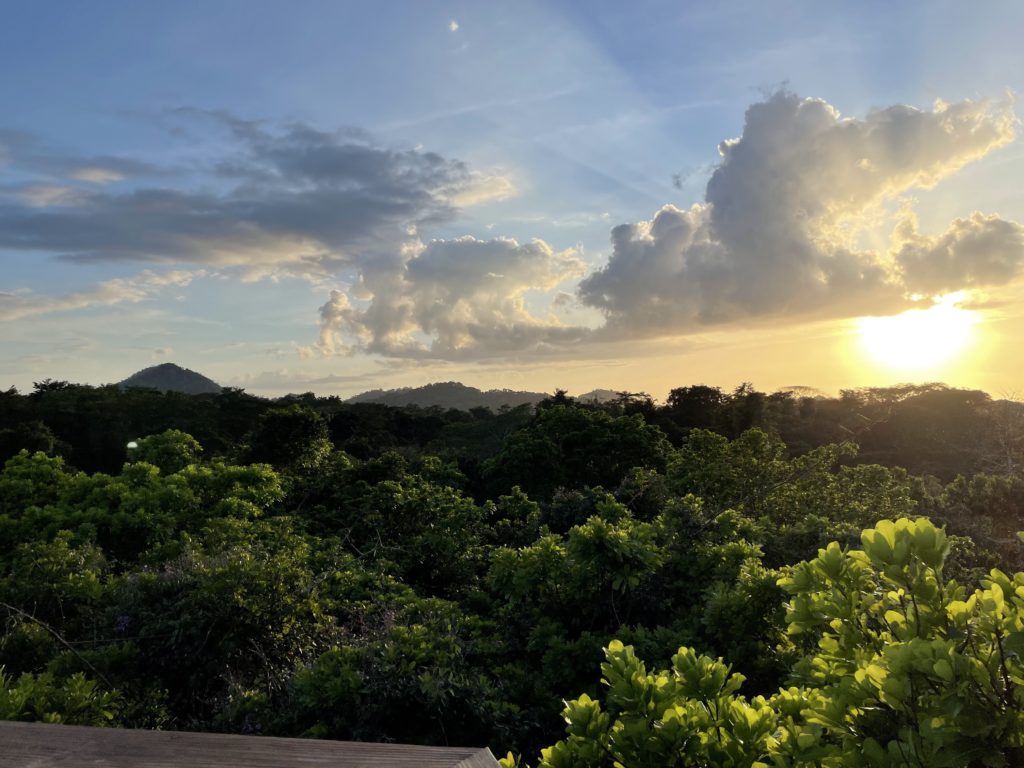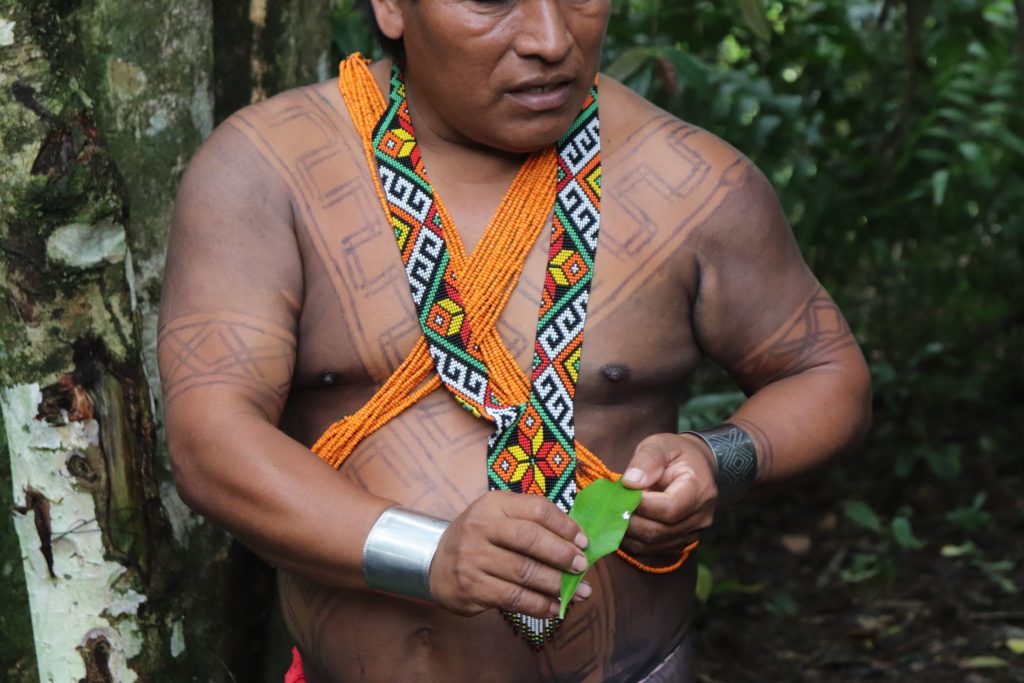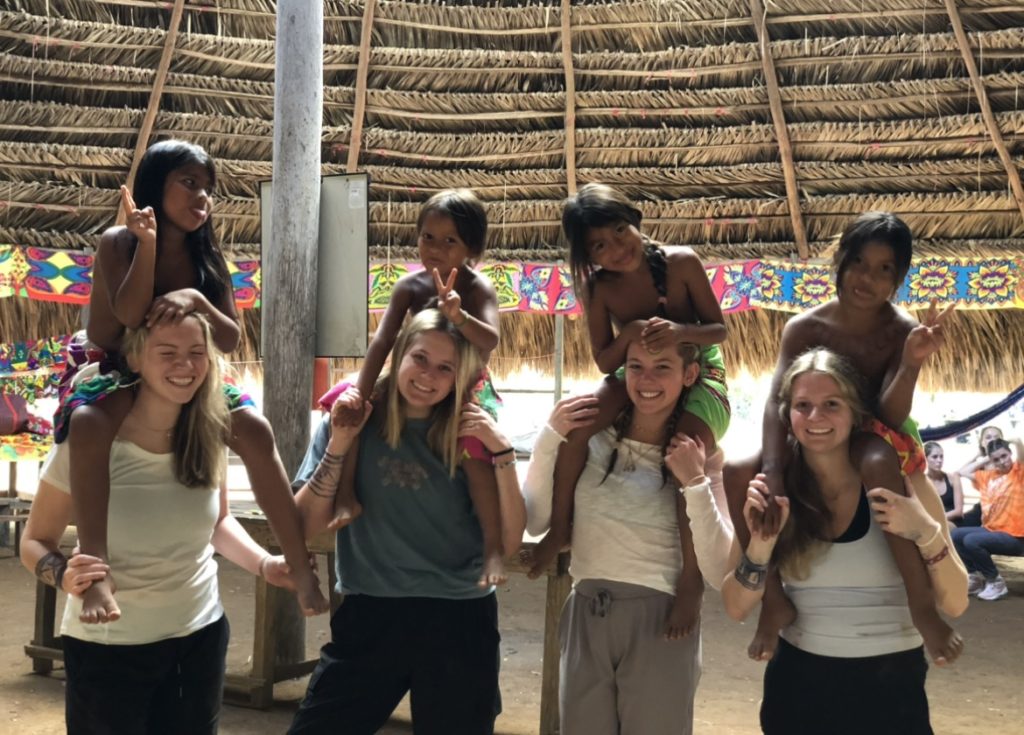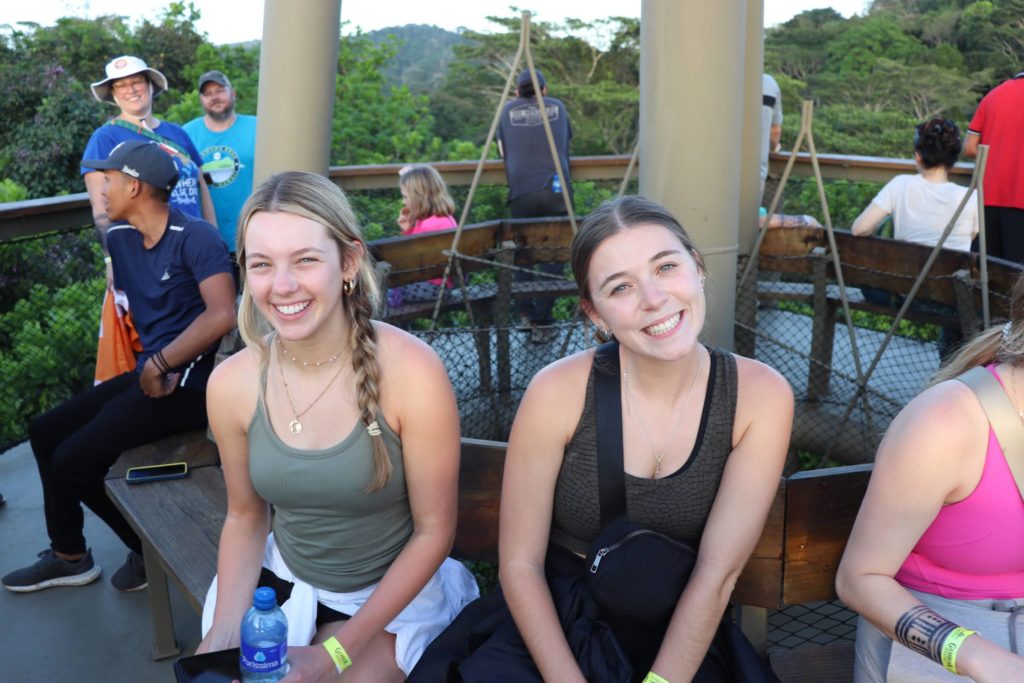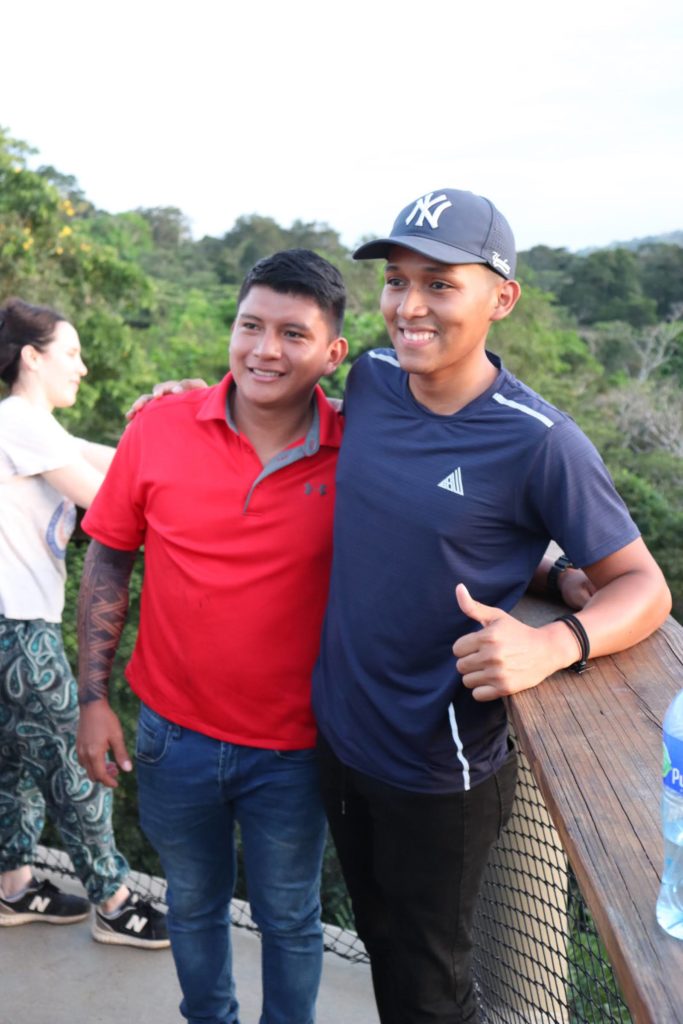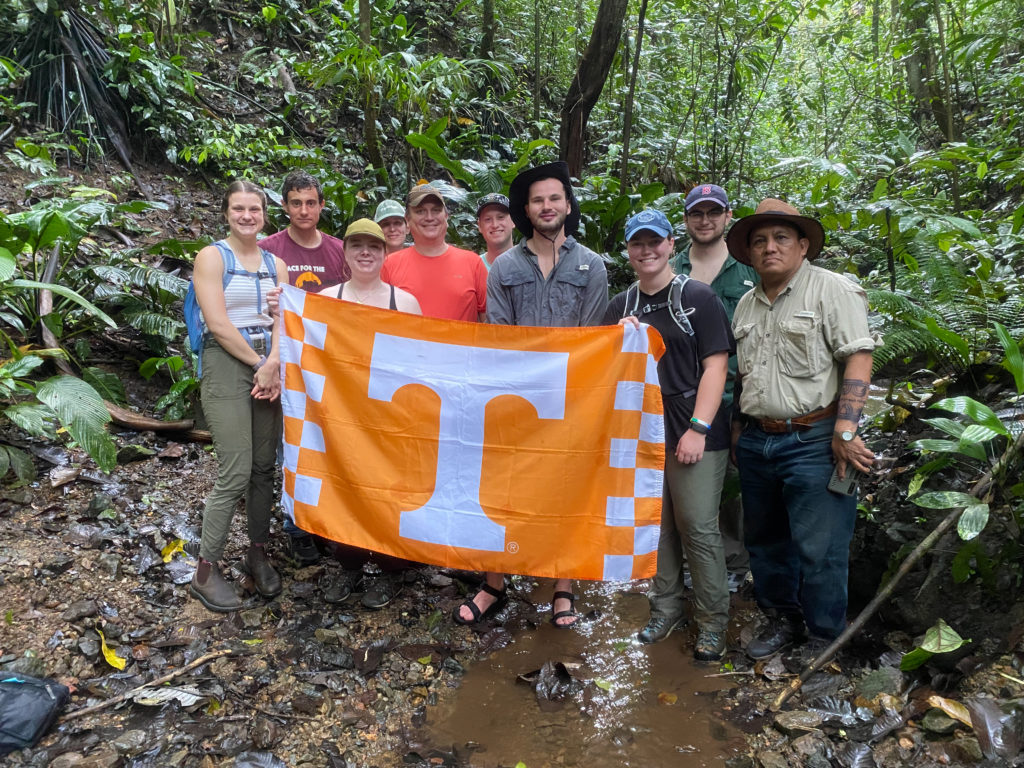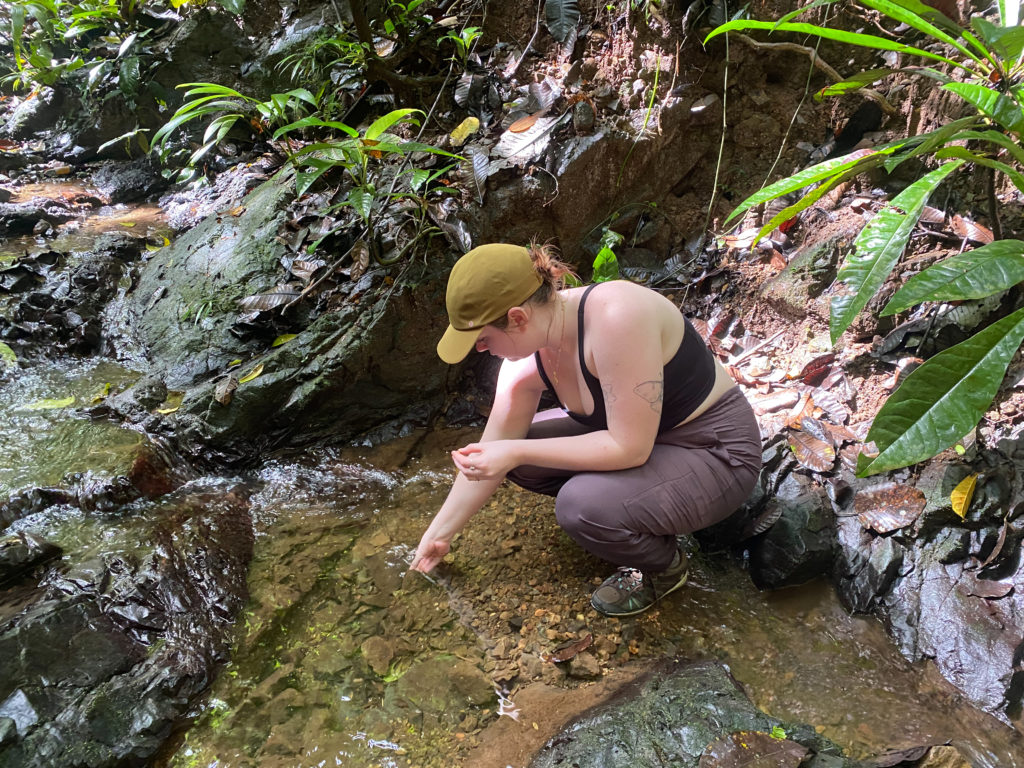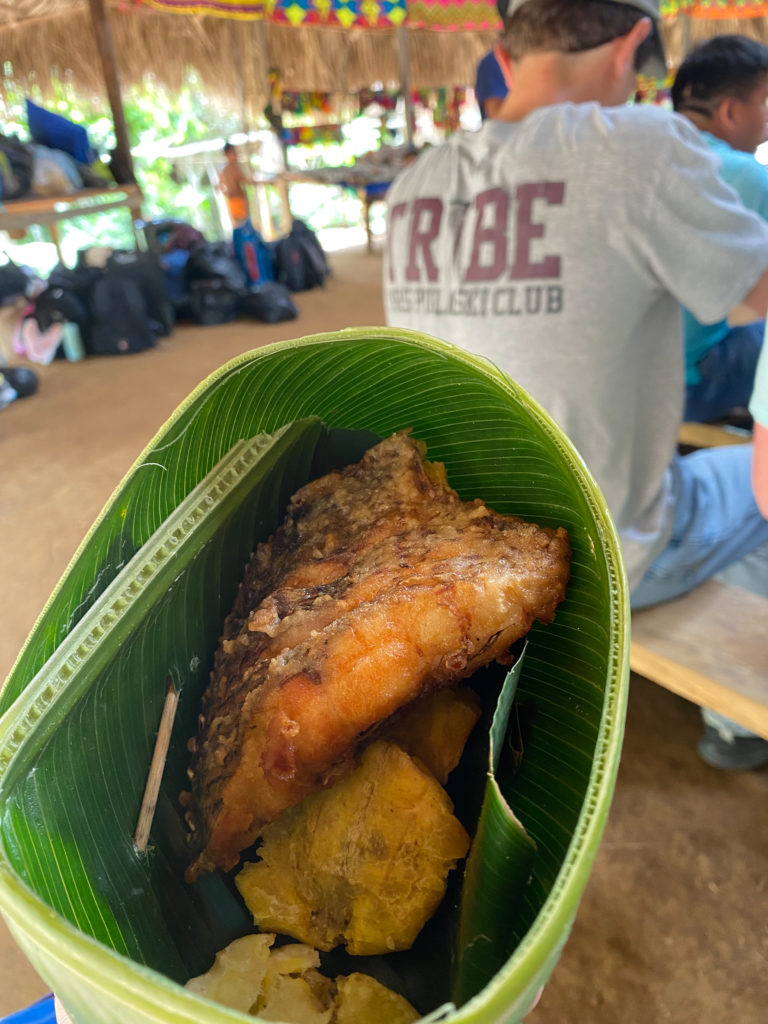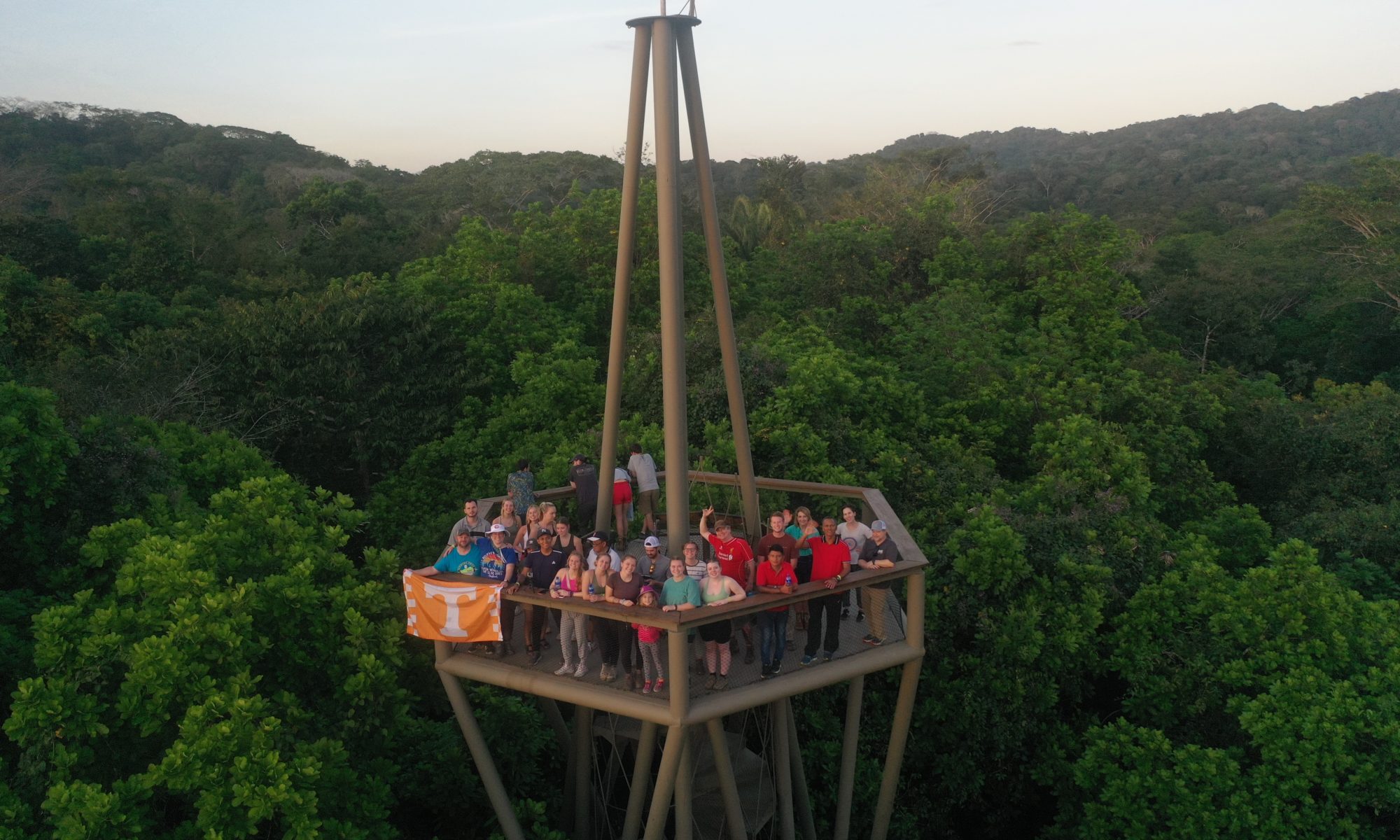
UT One Health facilitates interdisciplinary global engagement for students across different colleges.
By Mary Shelley-Snell
For the 2023 January Term, students from different disciplines explored the importance of working across multiple industries to address global public health issues. Jennifer Retherford, distinguished lecturer in the Department of Civil and Environmental Engineering, Adam Willcox, research associate professor in the School of Natural Resources, Nan Gaylord, associate dean of practice and global affairs in the College of Nursing, and Sara Mulville, program administrator in the Smith Center for International Sustainable Agriculture, led a group made up of engineering, agriculture, and nursing students on a UT One Health educational program for cross-sectoral engagement in Panama. The purpose of this trip was to work towards addressing One Health’s global strategy by equipping students with a broad knowledge base and skill set. Students and faculty worked with partners in Panama to address issues around water and sanitation.
The group stayed with an indigenous community in Chagres National Park where they worked with local stakeholders to test water quality. They also spent time in the city visiting universities and meeting with professors and had some down time in Gamboa to enjoy the environment. The variety of experiences on this trip made it more immersive for the students and allowed them to engage with several Sustainable Development Goals (SDGs). The group also explored how multiple disciplines can work together towards achieving those goals.
“Many issues we face as a society today are not simple. Clean water, for example, requires technical effort, but also policy, health awareness, and recognition of all the ways water enters our life (agriculture to name just one),” Retherford said. “In some cases, we need multi-lingual conversations – we need to encourage the public to care about clean water…because of these civil engineering reasons, because of these nursing reasons, because of these agriculture-related reasons. When we can sing in harmony, our song can be understood by a greater population of people.”
For Hailey Benner, a UT College of Nursing student, many aspects of this trip were inspirational, but learning about medicine in the indigenous village really interested her. “As a nursing student, learning about medicine in Panama was very impactful to me. The people in the village taught us how they use what’s around them in the rainforest as medicine,” she said. “I thought that was interesting because there are so many herbal remedies that they use where we just throw pills or other medicines at patients. It will be something that I take back and think about when I am practicing and see what other options are available for people that are sick.”
Participating in this course has strengthened Benner’s desire to work with women on prioritizing their health. “I am finishing up nursing school in May, and one of my passions is women’s health. I would love to travel and help women in other countries because there isn’t as much of an emphasis on prioritizing their health,” Benner said. “Being in Panama has only deepened this passion and opened avenues for me to pursue that goal. I can contact some of the organizations we worked with while we were there and get my foot in the door to go back!”
Global experiences like this One Health Panama trip help students shape their goals for the future, but also shifts their perspective on the problems they are working to address within their own career fields. “When students are asked to address technical questions in a new space, they start to think like problem-solvers. They tend to rely less on finding that one example from that one class that the one professor offered to them or some textbook outlined, and they move towards their fundamentals,” Retherford explained. “When they realize they have the fundamentals, and those fundamentals are universal, they can solve problems of different complexities when they return. I think they’re also a bit more aware of what’s possible – aware of the achievements people create with less resources than they are accustomed to – which means they reconsider what’s possible in any professional or personal situation they face.”
Benner believes that global experiences are important for other UT students to have because becoming more culturally competent helps broaden your outlook and makes people more empathetic and understanding. Her advice for students going abroad for the first time is to be open minded and ask questions. “No matter how long you are there, a week or several months, ask as many questions as you can. I have learned that by asking people about their lives you learn so much more, and they love to tell you. I think that it really enriches the experience abroad!”
Learn more here about how UT One Health is working to protect humans, plants, animals and the environment, while also growing global engagement at UTIA here.
